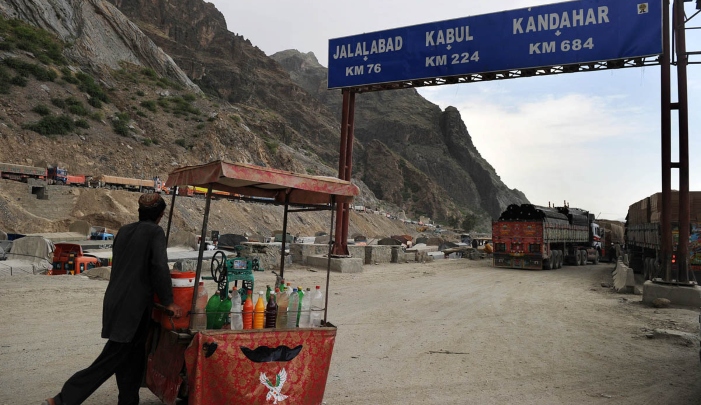Taliban takeover a 'blessing' for Pak-Afghan trade, say traders
Afghan traders earlier paid dual taxes; one to the govt and the other to the Taliban. Now, they only pay taxes to the Taliban
August 24, 2021

Despite uncertainty, after Afghanistan fell to the Taliban, bilateral trade between Pakistan and the landlocked Afghanistan has continued smoothly, say officials in Pakistan.
The Afghan-Pakistan Transit Trade Agreement, first signed in 2010, was extended this year in July for six months by Afghanistan’s former president Ashraf Ghani. But even though Ghani has now fled the country, the Taliban have allowed transit trade to flow across Pak-Afghan border crossings, said Haji Jabir Shinwari, the senior vice president of the Khyber Chamber of Commerce and Industry.
“As a result, trade activities at border crossings, therefore at Spin Boldak, Chaman and Torkham, have picked up momentum,” Shinwari told Geo.tv.
The vice president even went as far as to call the Taliban takeover a “blessing in disguise”, explaining that it is a win-win situation for traders on both sides.
“Earlier, traders had to pay dual toll taxes,” he said, “One tax was paid to the Afghan government and another to the Taliban. Now we have to only pay the Taliban.”
Shinwari further added that the Afghan government officials would also ask traders for bribes ranging from Rs. 70,000 to Rs. 100,000. Since the Taliban have came, he said, the bribes have stopped.
Under the trade agreement, Pakistan’s exports to Afghanistan include cereals, edible fruits, pharmaceutical products, wood, plastics, iron and steel, amongst others. The agreement also provides for Afghan exports to India using the land border between Pakistan and India.
Meanwhile, members of the Pakistan-Afghanistan Joint Chamber of Commerce and Industry have also expressed optimism about trade flowing with ease during the Taliban rule.
The Chamber’s secretary general, Faiza, told Geo.tv that the Taliban’s spokesperson Zabiullah Mujahid’s first press conference was positive, where he stressed that economic progression is an important focus for the new regime.
The secretary general added that a few weeks back the trucks crossing the border points had dropped from 400 to 40 per day. In the last two or three days, the number of trucks is back up to 400.
However, she added that the long term prospects of the Afghan-Pakistan Transit Trade Agreement still seem unclear. The Agreement, which was extended in July, is set to expire in November.
“Currently, the transit trade volume between Pakistan and Afghanistan hovers at around $1 billion annually. Whether this volume goes up or goes down, time will tell,” Faiza said.











